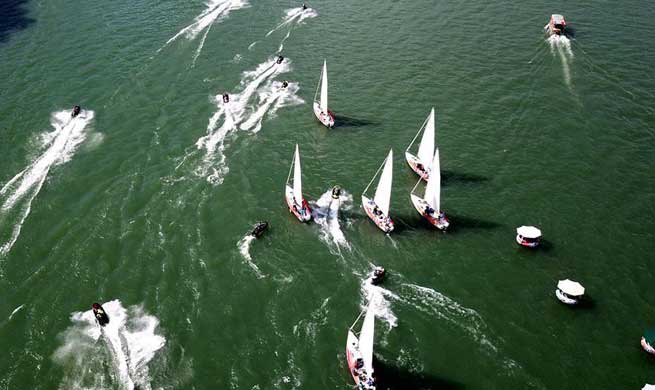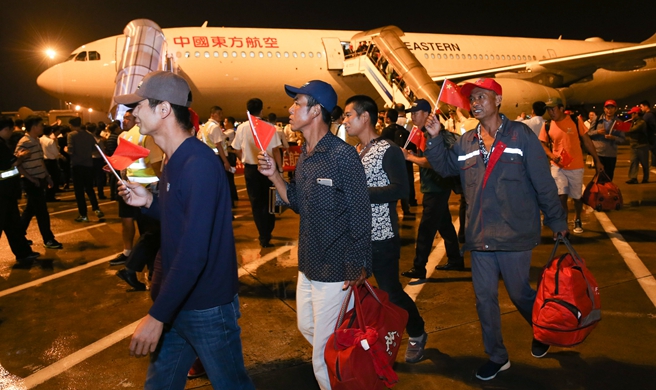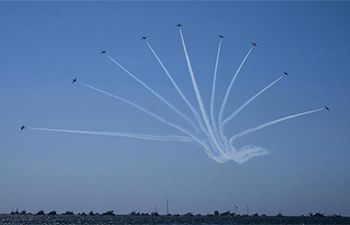ADEN, Yemen, Oct. 2 (Xinhua) -- The depreciation of Yemen's Rial, which hit lowest level against U.S. dollar amid huge economic challenges deepened by ongoing war, requires efficient management of the central bank, an official said.
The dollar is buying 383 Yemeni Rials in the temporary capital Aden, which is run by the legitimate government, up from 215 Rials the rate set before the war.
In Sanaa, the dollar is buying 380 Rials. The capital has been run by the Houthi-Saleh salvation government since the internationally recognized government was ousted in September 2014.
Yemen is facing the largest humanitarian crisis and cholera outbreak in the world after more than two and a half years of war. Two thirds of the population, nearly 21 million, need assistance and more than half of the population, around 16 million, lack access to safe drinking water and healthcare services.
One of the huge problems faced by the country is the liquidity crisis. Employees have not received a salary in a year.
An official at the Central Bank in Aden told Xinhua that the renewed decline of the national currency is attributed to the lack of efficient management of the bank and supervision on commercial banks and exchange stores.
In August, the legitimate government floated the national currency in a move that officials within both governments and analysts said was not well-studied a year after the relocation of the Central Bank to Aden.
"The decision on floating the currency was made by the governor alone. It should not have been improvised," said the official, who asked not to be named.
The inflation rate has been estimated at 20 percent this year, according to UN data, as the Yemeni economy is continuing to suffer after all exports were halted following a blockade on the country which was part of a Saudi-led military intervention in March 2015. The blockade has also restricted imports largely.
All investments including oil and gas projects, whose revenues used to contribute more than 70 percent of the state budget, were shut down. Flow of foreign cash has stopped almost completely and widespread corruption within the two governments is among problems deepening economic misery.
The Houthi-Saleh government said that Hadi's government should be blamed for the economic deterioration because it is running 93 percent of the national resources.
Waleed Al-Moafa, an economic advisor at the Council of Ministers in the Sanaa-based government, said the continuing fall of the Rial against other currencies is attributed to several factors, the first is the halt of all exports primarily because of the blockade. "Others include misuse of Hadi's government of natural resources, politicizing the financial sector and continuing Saudi-led aggression which is exhausting and targeting the national economy."
"The relocation of the central bank from Sanaa to Aden added to the problem weakening the trust of people and investors in the financial sector and creating a dual fiscal policy, one in Sanaa and the other in Aden," Al-Moafa said.
Meanwhile, both governments have failed to combat the black market leaving some banks and exchange stores to manipulate the exchange rate and control foreign currencies, analysts said.
Mustafa Nasr, head of the studies and economic media center, said addressing the problem requires two things: activating the central bank and resuming oil and gas exports.
"The central bank is facing a big functional problem but the government can still establish an efficient management of foreign cash at least through benefiting from remittances of expatriates and funds of international agencies," Nasr said.
Owners of exchange stores said no one is supplying them with U.S. dollars and that is why they are buying the dollars in the local market and increasing the exchange rate.

















